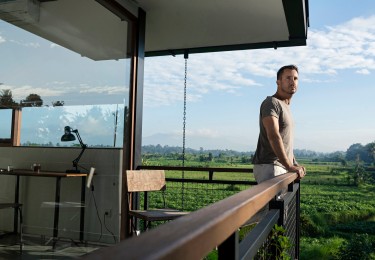
A journey and a race: Helping build a net zero economy
We’ve pledged to become net zero for carbon emissions by 2050. Here’s how we plan to do it…
3 min read
Become A Client
When you become a client of Coutts, you will be part of an exclusive network.
Becoming ‘net zero’ in carbon emissions to counter climate change is perhaps the largest single challenge for humanity. While the goal is simple, the solutions today appear nebulous and will require multi-faceted approaches encompassing political strategy, technological development, financial investment and social change. It is both a journey and a race.
Recognising the need for this change, the UN Convention Framework on Climate Change was set up in 1994. Since that time there have been numerous UN climate change ‘conferences of parties’ (COPs), notably leading to the Kyoto Protocol in 1998 and the Paris Accord in 2015, which have all helped define how humanity can achieve net zero carbon emissions by 2050. In 2021, Coutts and our parent the NatWest Group will take a lead partnership role at UN COP26 in Glasgow, where the critical role of finance in addressing climate change will be discussed with world leaders.
WORKING WITH WORLD LEADERS AND
BUILDING BEST PRACTICE
Beyond the key carbon reduction and net zero goals, we will work to find and fund best practice for sustainable finance. As well as partnering with COP 26, in 2021 Coutts joined the Net Zero Asset Managers Initiative: a global alliance of 128 asset managers committed to net zero greenhouse gas emissions by 2050 or sooner. Those asset managers now represent $43 trillion of assets, close to 50% of the global total.
Coutts also became a B Corp this year, which means principled investment with environmental, governance and social tenets. It also commits us to having a prudent business model that benefits people and the planet, as well as providing profit.
RESPONSIBLE AND REWARDING FOR INVESTORS
We believe economics can be an engine of change. By encouraging the world’s largest companies to transition, we can employ the economies of scale they have built to achieve net zero faster. This in turn can create investable economies which support new, sustainable technologies and businesses.
This underlines the other argument for being a net zero investor: the opportunity offered by the need for change can provide substantial, long-term reward.
Investing for net zero provides such opportunity because it requires us to focus on emerging sectors which are expected to see growing global demand. Renewable energy, green technology, carbon capture, electric vehicles and research and development will all be key for the green economy and, therefore, our client portfolios and funds.
Leslie Gent, Head of Responsible Investing at Coutts, said: “We expect to see these markets grow and mature over the long term, rewarding the early investor as financing, supply chains and whole economies move towards becoming net zero.”
PART OF THE SOLUTION FOR CLIENTS & CLIMATE
Our commitments are about finding new solutions because there is no one clear answer to how the world can get to net zero by 2050, or the parallel target of limiting global warming to 1.5 Celsius: “We want to be part of the solution and know that, as an asset manager, we have the power and responsibility to do that,” says Leslie.
“As a long-term investor, our portfolios will move over time. If we only invested in nascent green technologies from day one, our portfolios would look green but the world wouldn’t, because we wouldn’t be making the most of our potential to achieve carbon reductions in the real world, therefore, limiting our ability to make long lasting change.”
For us, and the broader sector, this is about transition. That’s why we might still hold large energy companies. Because as an investor we can apply shareholder pressure to ensure they invest in net-zero energy. The fact that several of the world’s biggest hydrocarbon multinationals have signed up to net zero by 2050 is recognition of this.
A CLEAR CARBON-REDUCTION PLAN AT COUTTS
Things are already happening. Coutts will reduce the carbon intensity in the equity parts of our discretionary portfolios and funds by 25% by the end of 2021. Then, by 2030 we plan to have achieved an overall reduction of 50% and aligned all our investments with net zero.
We already don’t invest in any company that:
- derives more than 5% of its revenue from thermal coal extraction, mining and exploration
- derives more than 25% of its revenue from thermal coal generation, including utilities that own or operate coal-fired power plants
- derives more than 5% of its revenue from involvement in tar sands – a mixture of clay, sand, water and bitumen that are mined and refined into oil
- derives more than 5% of its revenue from Arctic oil and gas exploration
There is a long way to go yet and so much still to be achieved but success will grow with responsible investing. “We believe in empowering our clients to make a difference,” says Leslie. “Their investments will help develop the technology, businesses and networks that will shape the net zero future.”
When investing, the value of your investments, and the income you receive from them, can go down as well as up and you may not get back as much as you invested.








